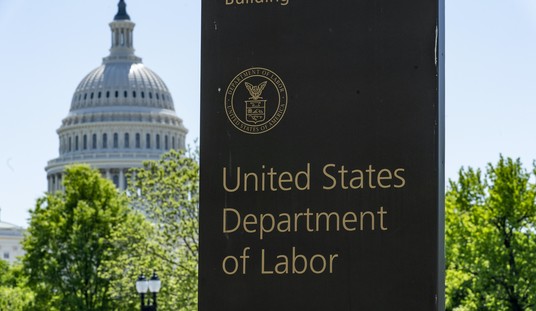Today is Charles Barkley’s 59th birthday and the man deserves a shout out because, in the age of activism in sports that amounts to little more than whining (ahem, Kaepernick), the man is using his post-All Star (11 times, y’all) fame to do some really good things.
NBA Hall of Famer Charles Barkley may not be a fan of President Trump, but his plans to partner with a vocational school in Alabama to help young black millennials aligns well with Trump’s own vision for advancing America’s workforce.
Barkley, who co-hosts TNT’s “Inside the NBA,” has been outspoken about the issues affecting the black community and has tended to promote more conservative solutions. Unlike most commentators, however, Barkley is actually putting his money where his mouth is.
“I’m working on a new initiative in Alabama … I don’t know any black plumbers, any black electricians, any black car mechanics,” Barkley told ESPN’s Stephen A. Smith on Friday. “So I’m going back to Alabama over the summer and I’m going to partner with a vocational school to get more black plumbers, electricians.”
There has been a recent rethinking about the value of community colleges and vocational schools in the glare of the rising cost of tuition and massive student debt that goes hand-in-hand with the four-year liberal arts education. President Donald Trump, speaking at the GOP retreat at the end of February, spoke of re-educating Americans on what the terms mean, and what centers that focus on “middle-skill” employment can do to bolster the economy.
The President of Montgomery College in Maryland expressed pleasant surprise in a column at The Baltimore Sun upon hearing the President address what she says is a crucial part of educating Americans to meet workforce needs.
Roughly 12 million students are enrolled in community colleges in the nation — about 45 percent of all U.S. undergraduates — which tells me that many people understand what we do. But the call for more “vocational schools” does highlight two important issues in higher education: the increased need for both middle skills training in our nation and for even more awareness of the expansive workforce development role that community colleges already play.
ADVERTISINGMore than half of the U.S. labor market — 53 percent — is made up of middle skills jobs. Some are in more traditional “vocational” fields: auto repair, heating ventilation, air conditioning (HVAC) and electrical installation. With technologies in these areas advancing rapidly, though, all of these fields require post-secondary education for workers to attain the middle skills jobs that can boost them out of poverty.
Barkley, who says he laid roofing tile before becoming a baller on the court, would appear to have real-world experience of the value that comes with learning a craft or trade and monetizing it. And, despite his skepticism — just like the rest of us — of the millennial work ethic, he believes in them enough to devote his time to helping them learn how to make a prosperous future a reality.
While Barkley doesn’t seem to have the highest view of millennials — even calling them “idiots” in the interview — he understands that hard work is the only sustainable path out of poverty and that college isn’t the only option that opens doors.
Trump has echoed the need for vocational schools and apprenticeships on several occasions, making it a key priority of his economic policy.
If Barkley can get past his criticism of the current administration to help out kids and lend a hand toward building a better economic future, surely others naturally predisposed to dislike Trump can do the same?
After all, as a colleague reminded me this morning, Charles Barkley has never considered himself a role model. Sorry Mr. Barkley, but you are.
90s joke https://t.co/MLMEVCRKMm
— Neil Stevens (@presjpolk) February 20, 2018













Join the conversation as a VIP Member